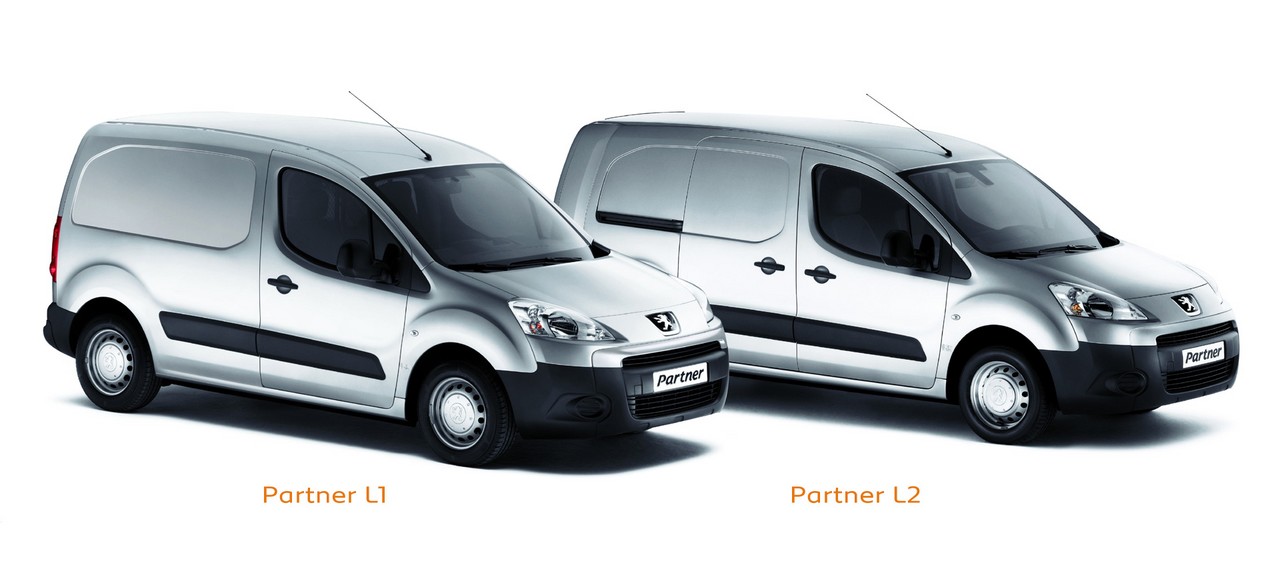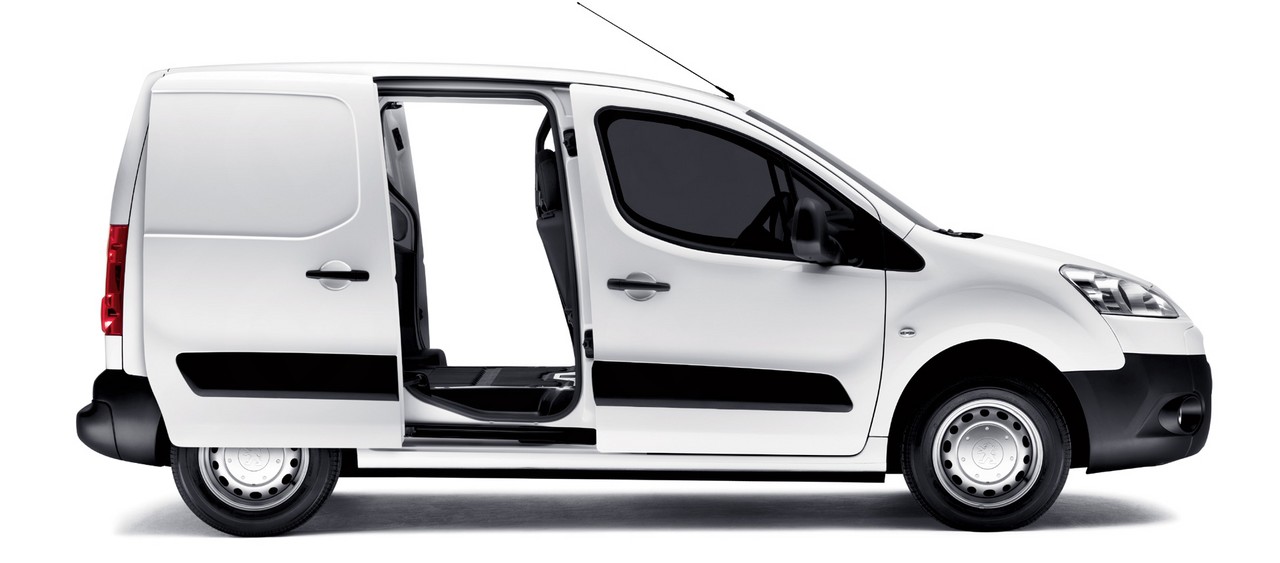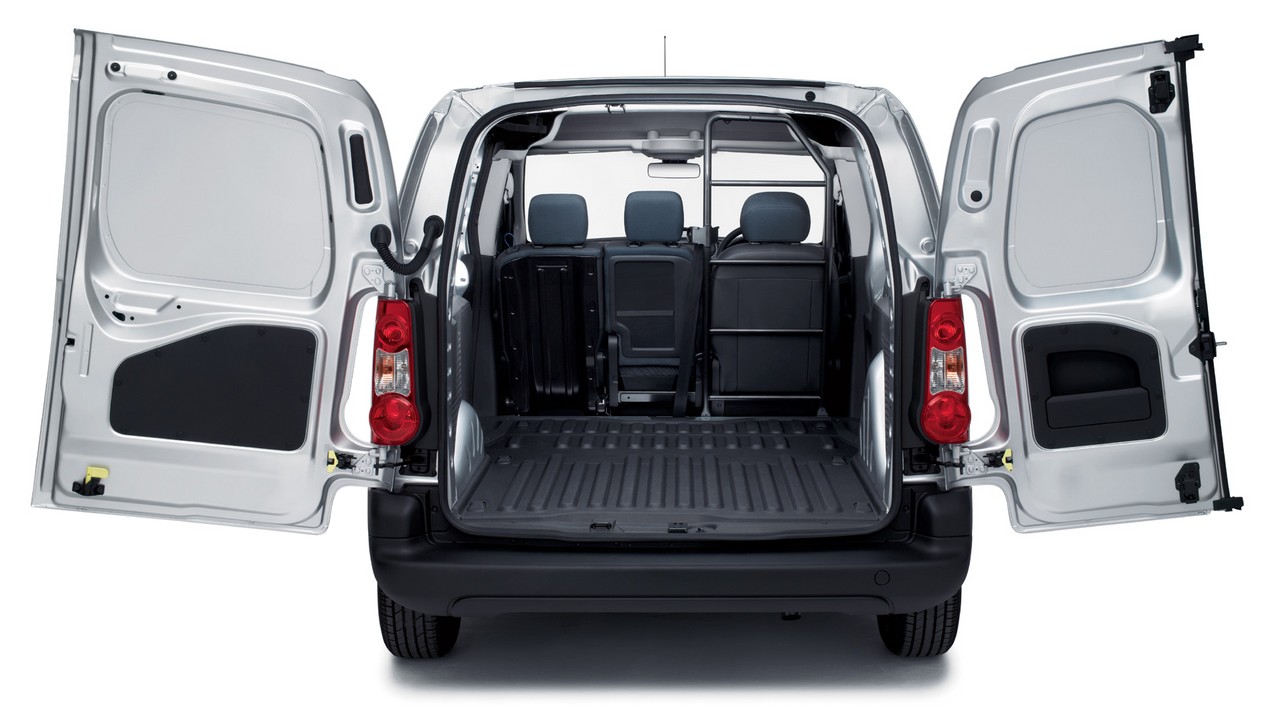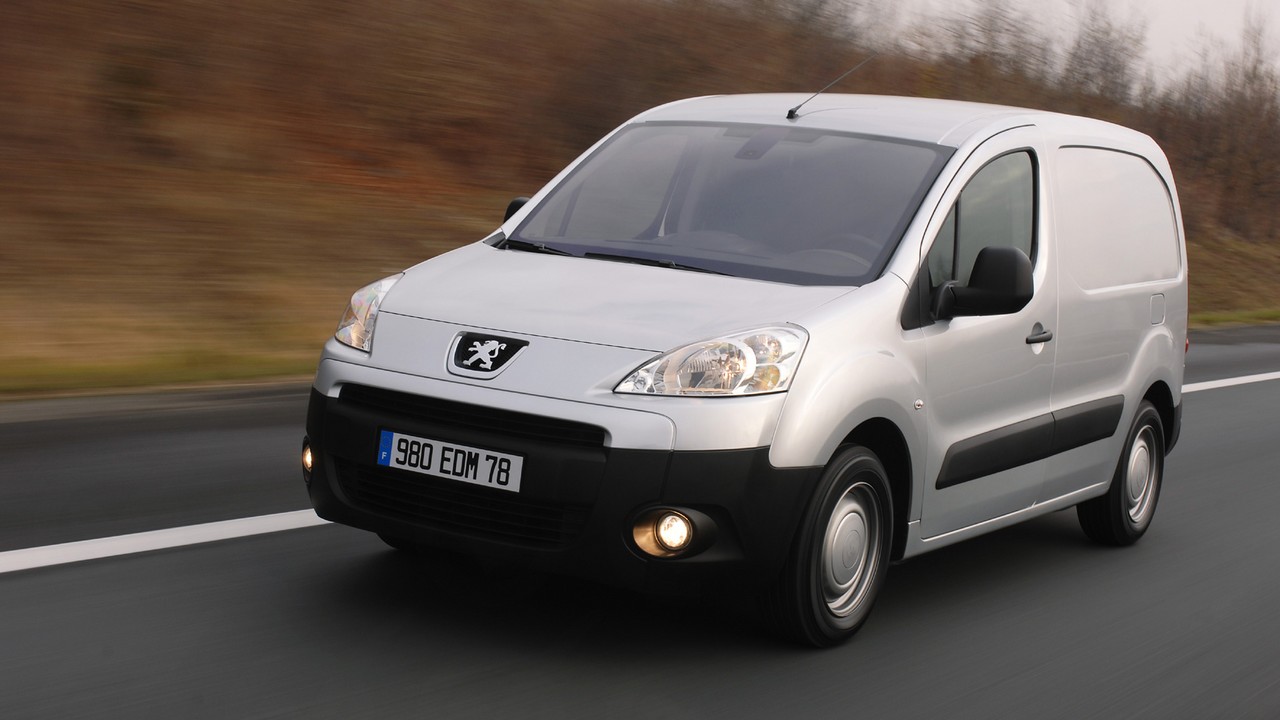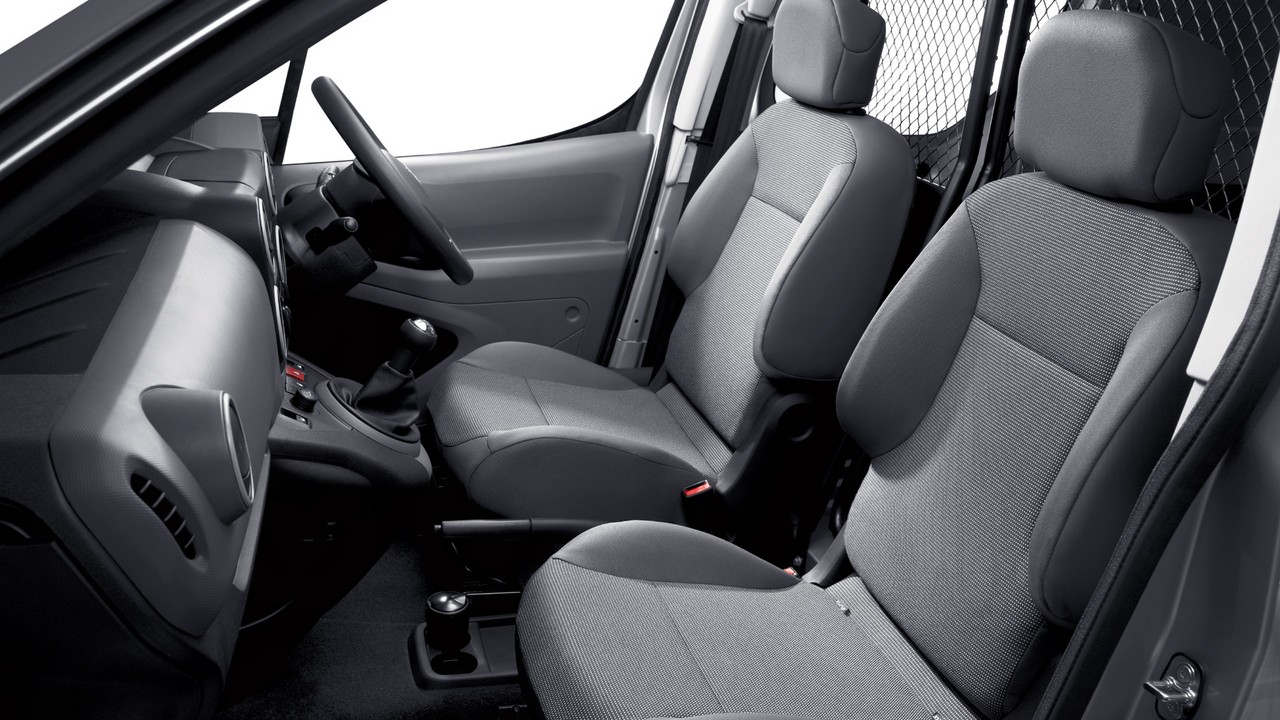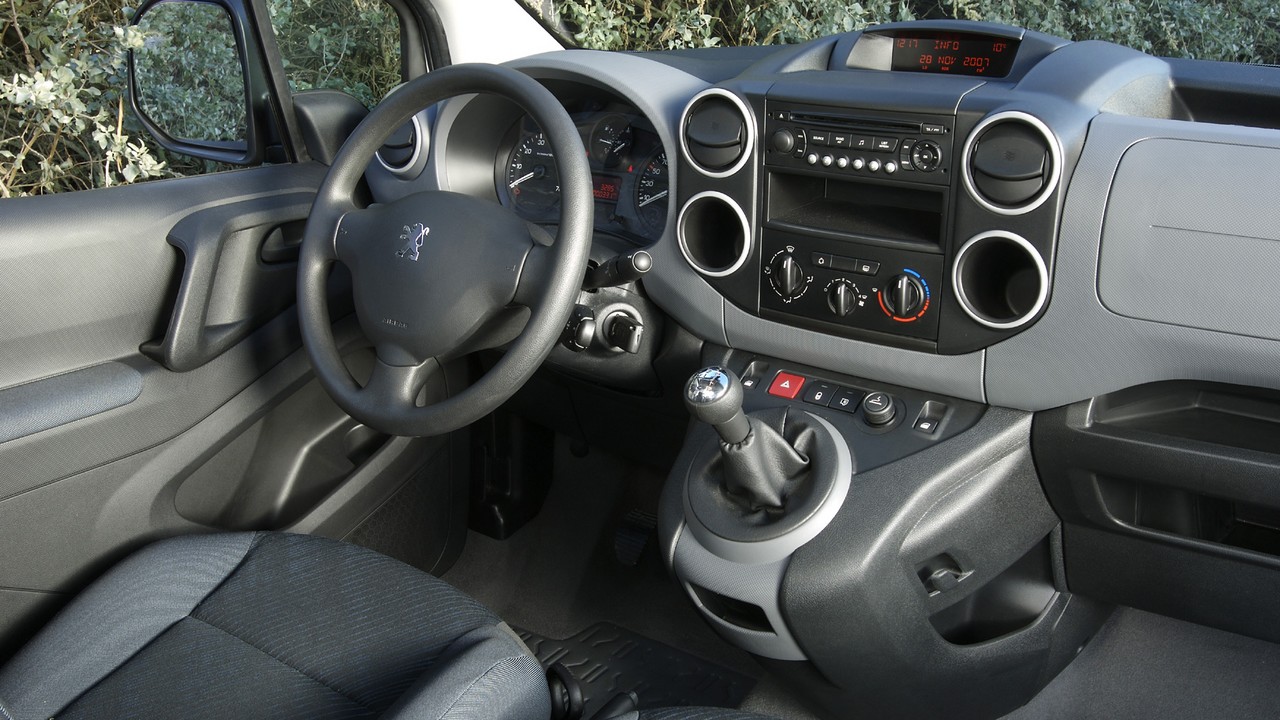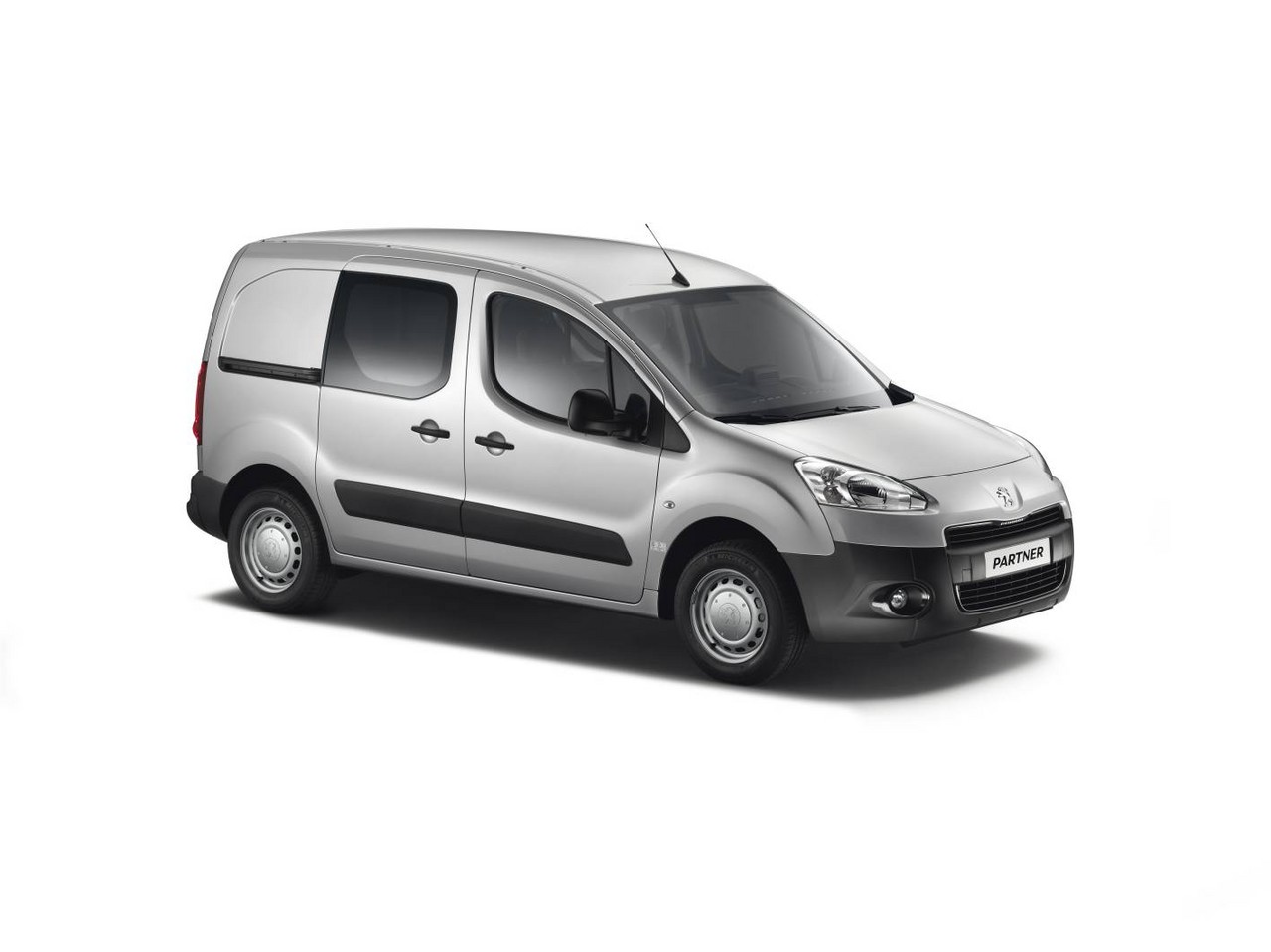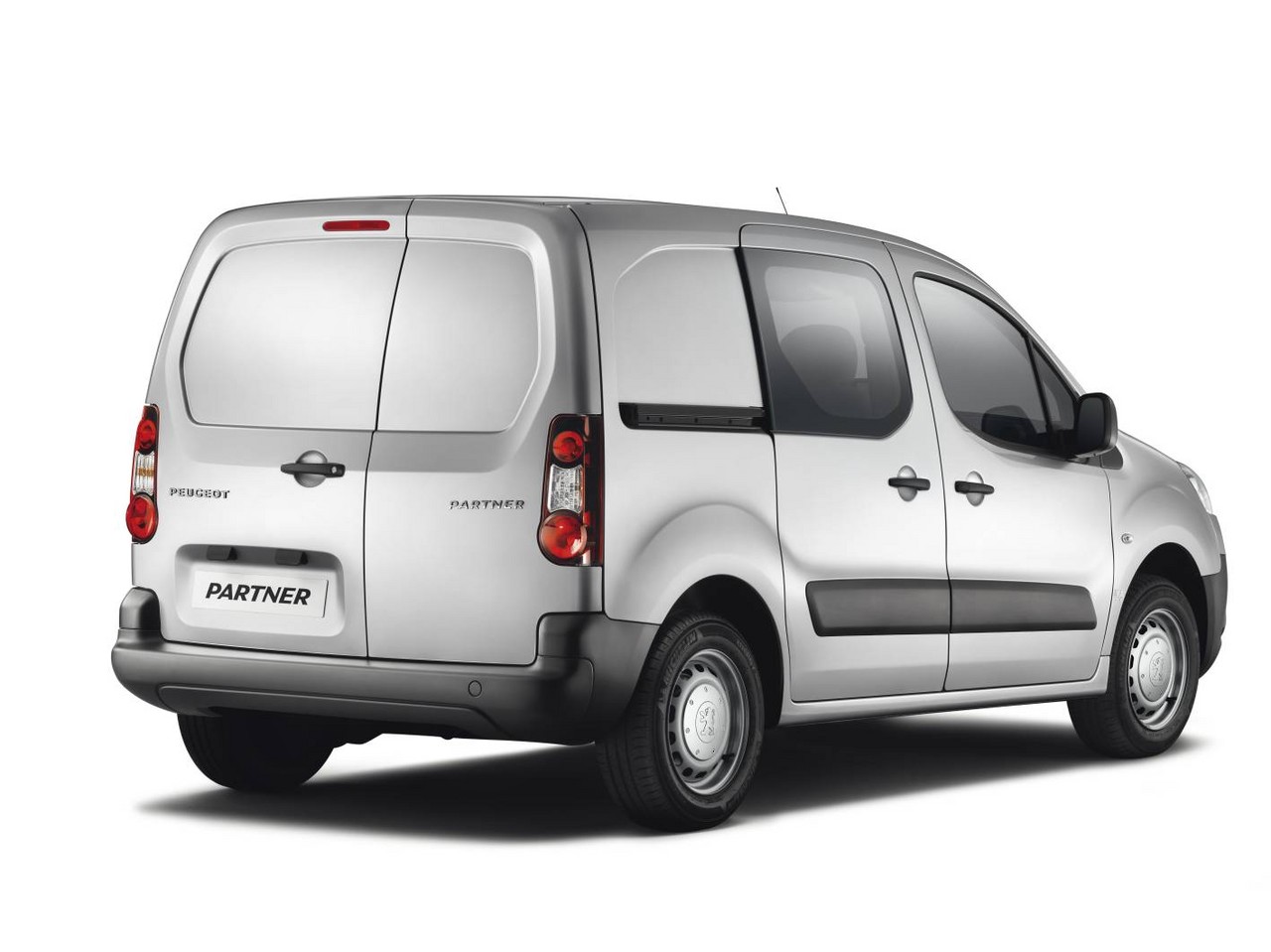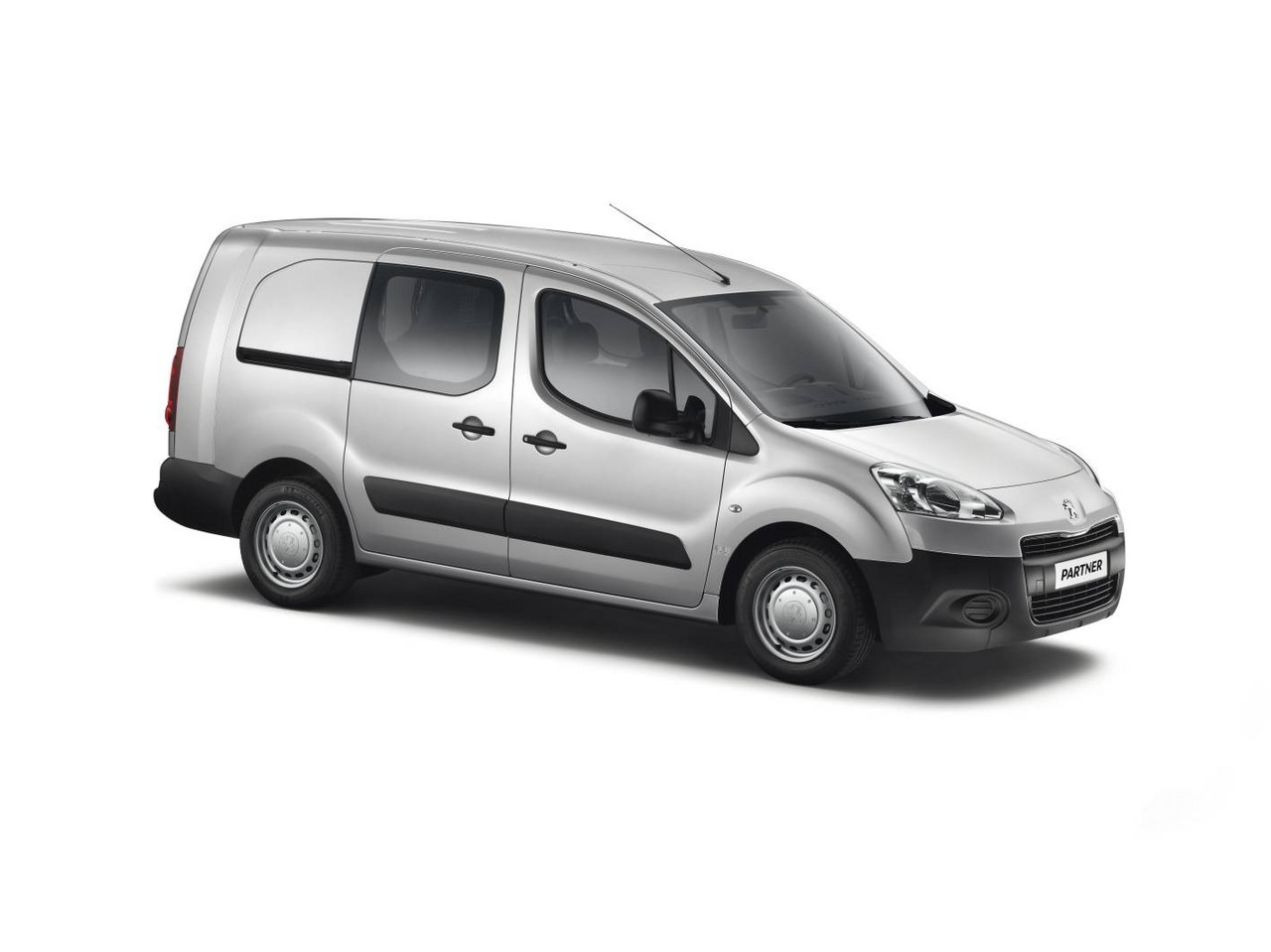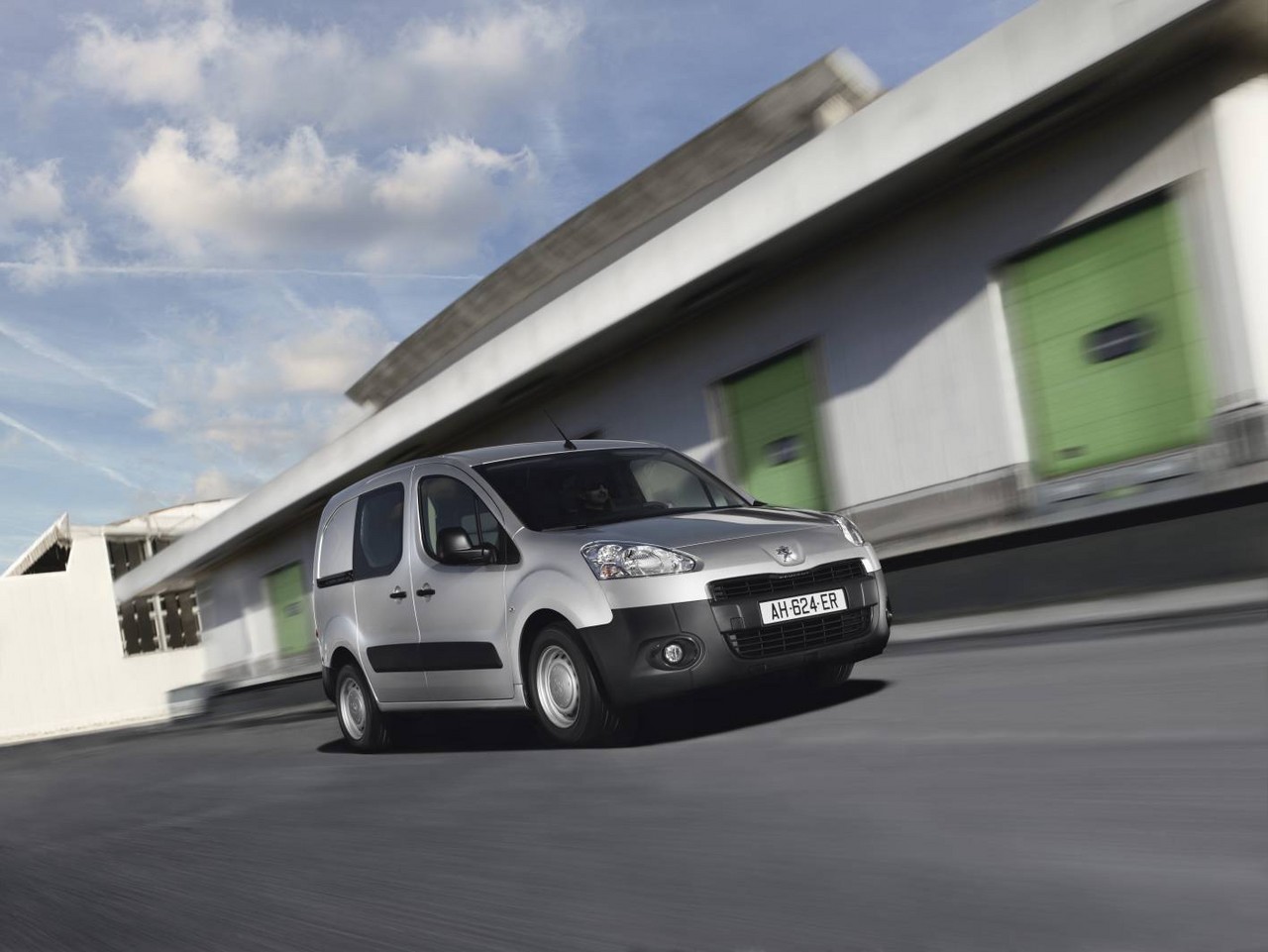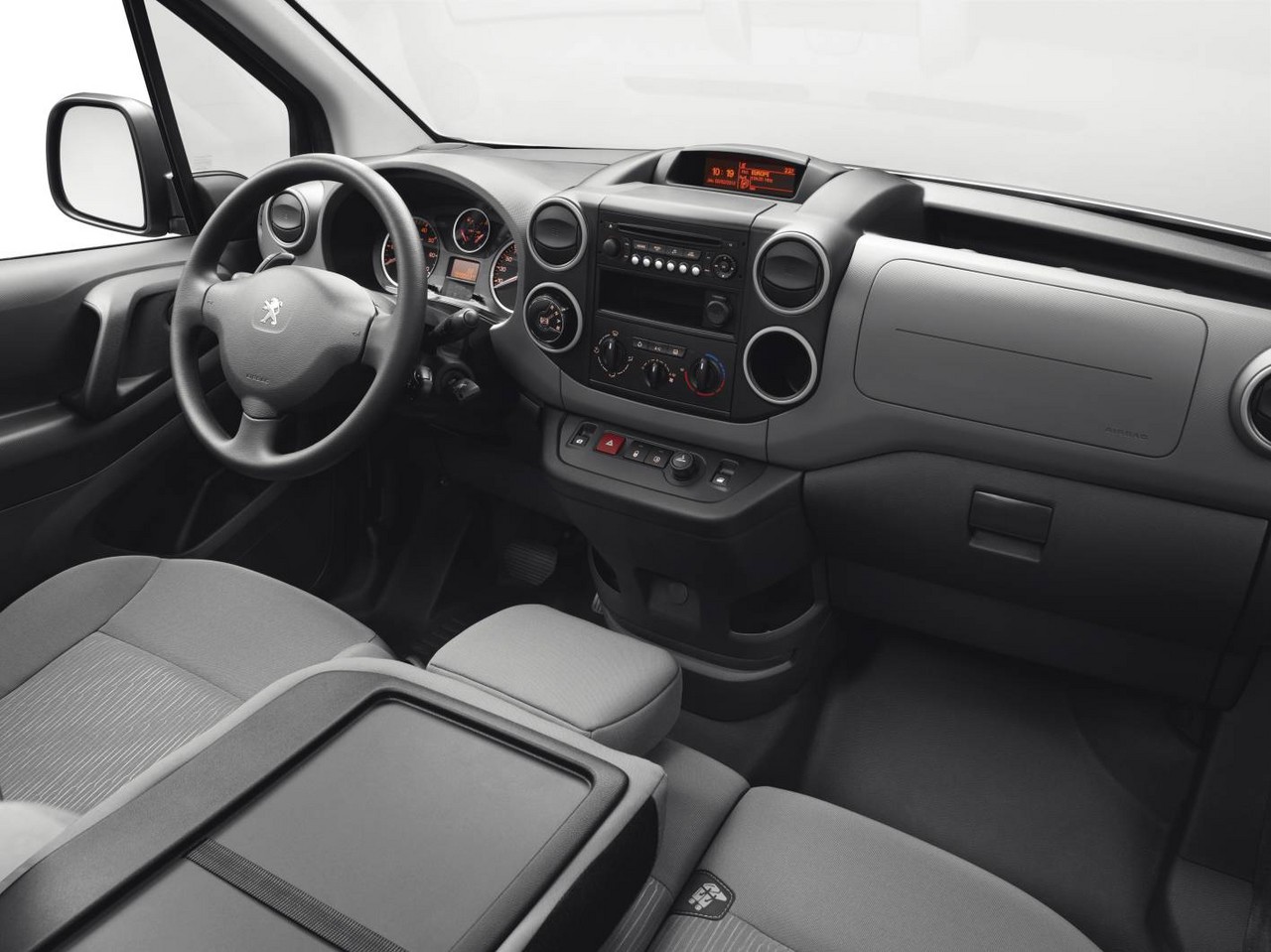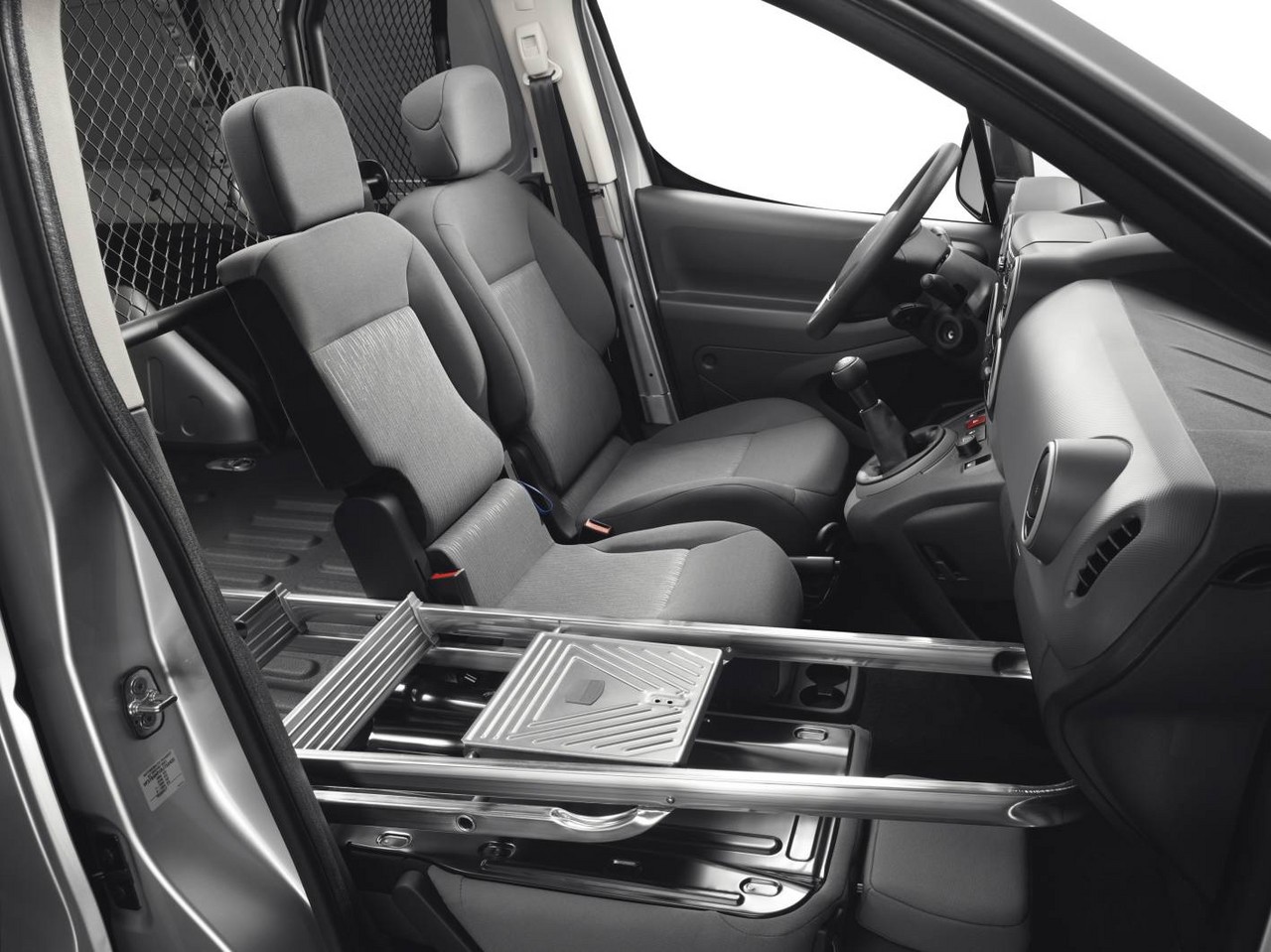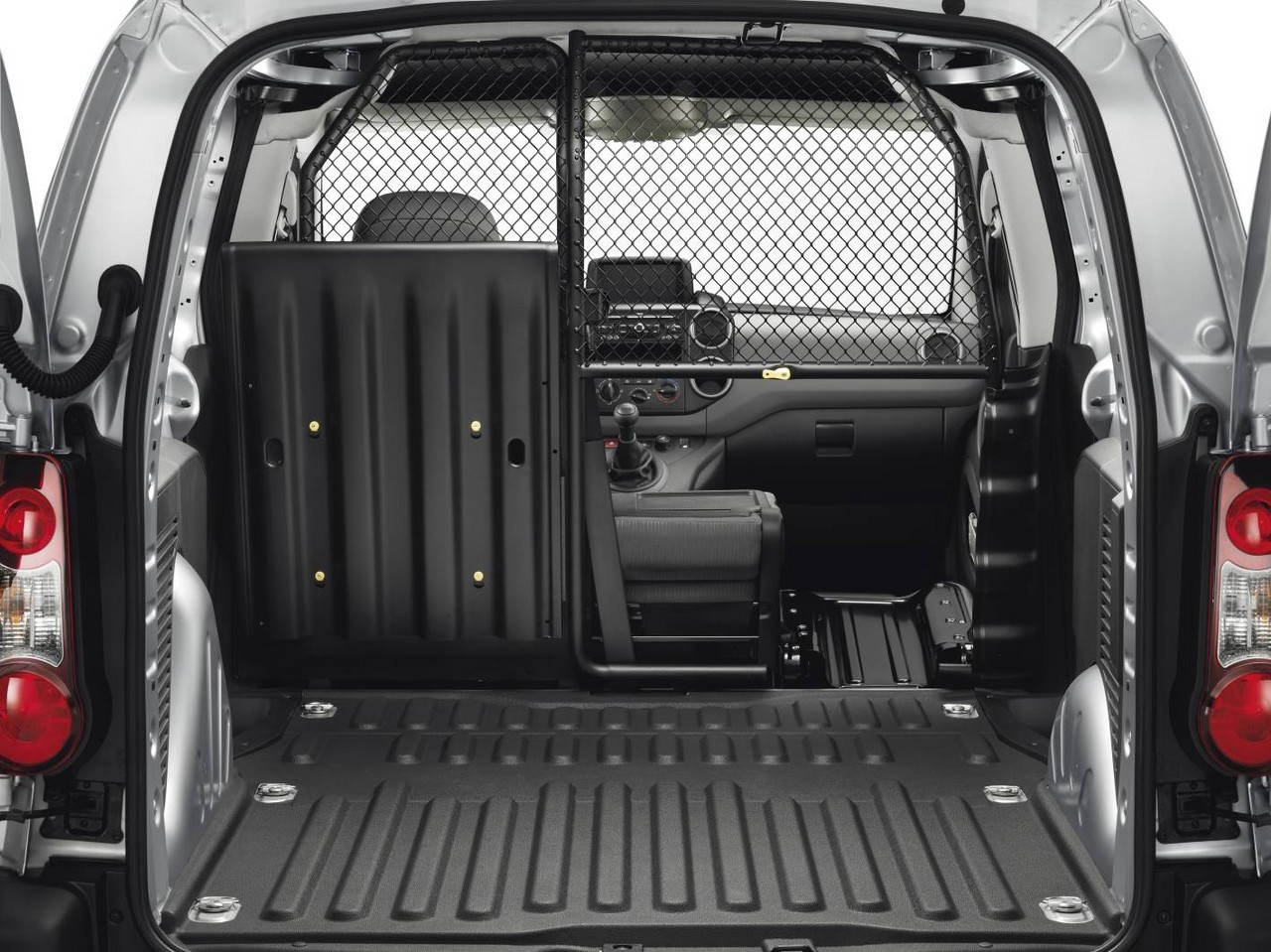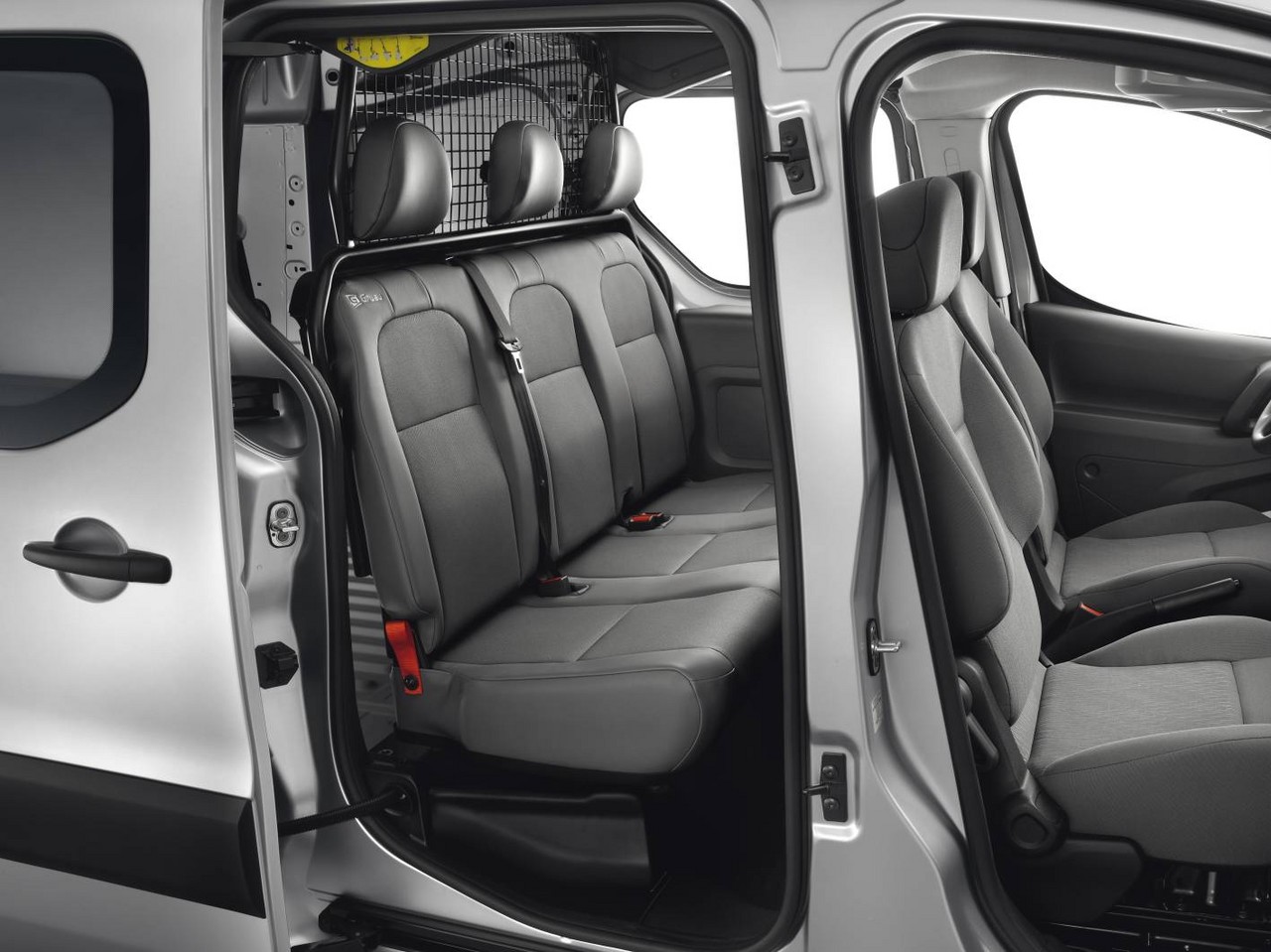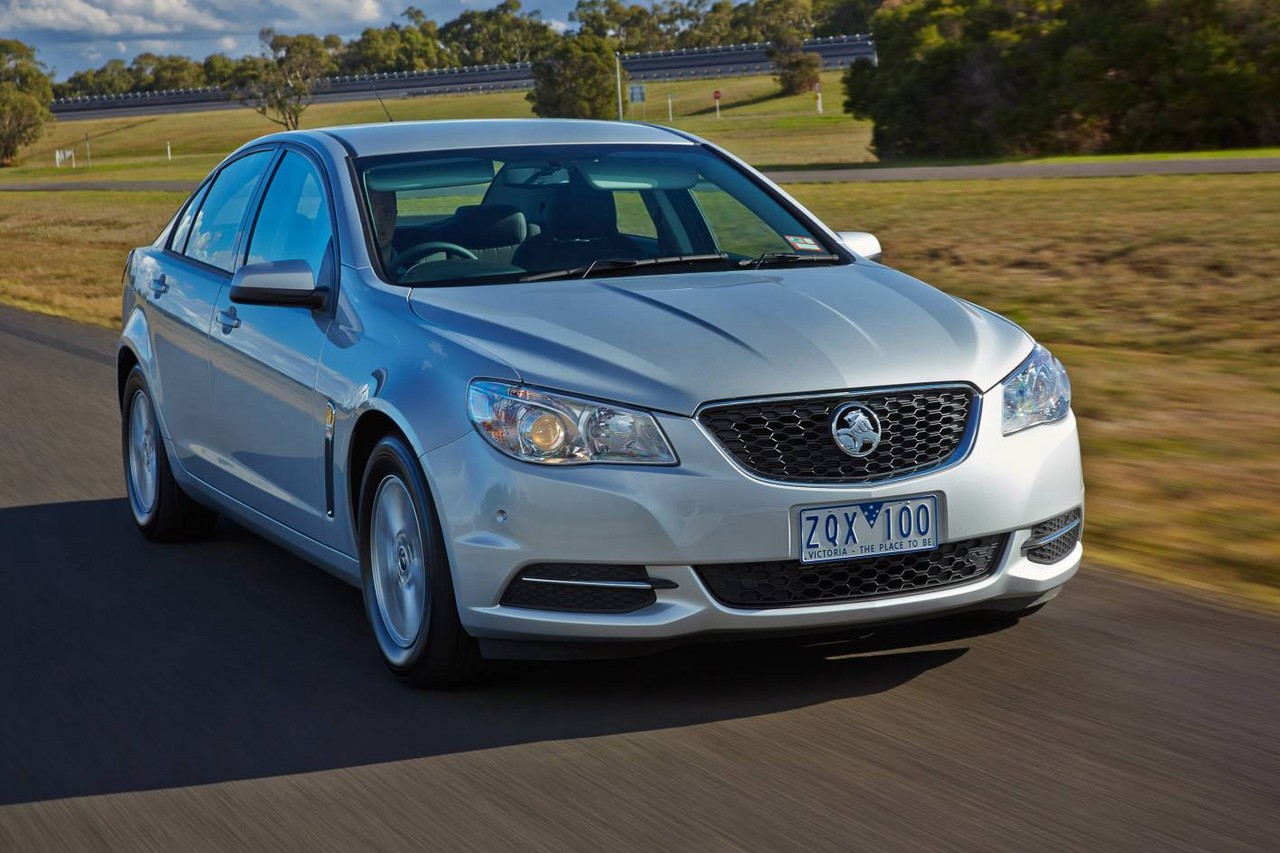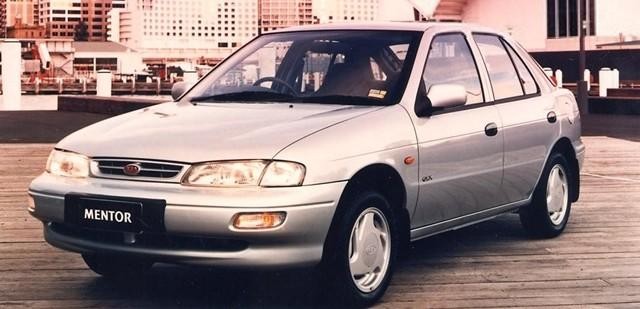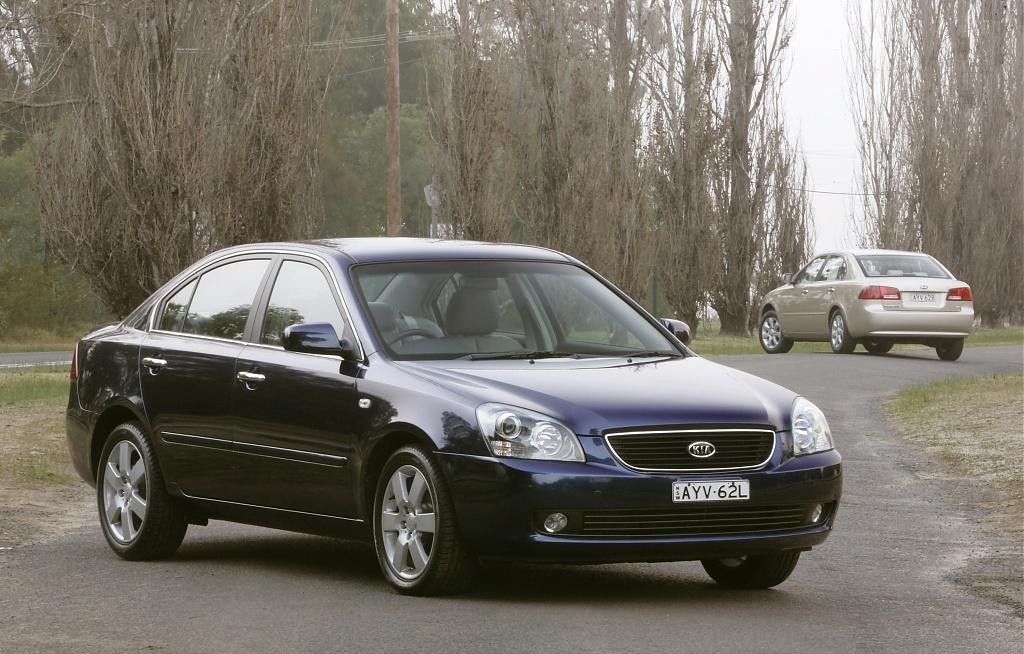
- Responsive and frugal turbo-diesel engine
- Well-weighted and accurate steering
- Good ride/handling balance
- Underpowered 1.6-litre petrol engine
- Sluggish performance when off-boost
- Electronic stability control and traction control only standard for B9.II Partner
Review: Peugeot B9.I Partner (2008-12)
Overview
Released in September 2008, the Peugeot B9 Phase I (B9.I) Partner was a two-seat van, available in short (L1) and medium length (L2) variants. The B9 Partner was offered with three engines: a 1.6-litre four-cylinder petrol engine and two 1.6-litre four-cylinder turbo-diesel engines, with differing power outputs (55 kW and 66 kW); the L2 was solely available with the more powerful turbo-diesel engine.
| Variant | Body | Engine | Trans. | Peak power | Peak torque |
|---|---|---|---|---|---|
| 1.6 | L1 (SWB) | 1.6-litre petrol I4 | 5sp man. | 66 kW at 5800 rpm | 132 Nm at 2500 rpm |
| 1.6 HDi | L1 (SWB) | 1.6-litre turbo-diesel I4 | 5sp man. | 55 kW at 4000 rpm | 185 Nm at 1750 rpm |
| 1.6-litre turbo-diesel I4 | 5sp man. | 66 kW at 4000 rpm | 215 Nm at 1750 rpm | ||
| L2 (MWB) | 1.6-litre turbo-diesel I4 | 5sp man. | 66 kW at 4000 rpm | 215 Nm at 1750 rpm |
| L1 (SWB) | L2 (MWB) | |
|---|---|---|
| Wheelbase | 2728 mm | 2728 mm |
| Length | 4380 mm | 4628 mm |
| Payload | 850 kg | 750 kg |
| Volume | 3.3 to 3.7m3 | 3.7 to 4.1m3 |
| Load length (to the seats) | 1800 mm | 2050 mm |
| Load length (with Multiflex passenger seat) | 3000 mm | 3250 mm |
| Maximum load width | 1620 mm | 1500 mm |
| Width between wheel arches | 1229 mm | 1229 mm |
| Maximum load height | 1250 mm | 1250 mm |
Safety equipment
Standard safety equipment for the B9 Partner included a driver’s airbag, ABS, brake assist, electronic brake force distribution and front seatbelts with pretensioners and load limiters. Electronic stability control and traction control were optional.
Features
Standard features for the Partner L1 included a four speaker sound system with CD player and MP3-compatibility, air conditioning, cruise control with speed limiter, steering wheel audio controls, rear fog lamps, power windows and heated mirrors, remote central locking, deadlocking, a tilt and reach adjustable steering wheel, height adjustable driver’s seat, a trip computer and an immobiliser.
The L2 had similar features but its body also had right and left side sliding doors.
Related links
Review: Peugeot B9.II Partner (2012-15)
Overview
Released in December 2012, the B9 Phase II (B9.II) Partner introduced a new 1.6-litre petrol engine, additional safety equipment and the availability of two and three seat models. Visually, the B9.II Partner could be identified by its redesigned front grille and daytime running lights; L1 variants models were also fitted with a left side sliding door.
| Variant | Body | Engine | Trans. | Peak power | Peak torque |
|---|---|---|---|---|---|
| 1.6 | L1 (SWB) | 1.6-litre petrol I4 | 5sp man. | 72 kW at 6000 rpm | 152 Nm at 3500 rpm |
| 1.6 HDi | L2 (MWB) | 1.6-litre turbo-diesel I4 | 5sp man. | 68 kW at 4000 rpm | 215 Nm at 1750 rpm |
Safety equipment
Compared to its B9.I predecessor, standard safety equipment was extended to include a front passenger airbag, electronic stability control and traction control.
Features
Standard features were extended to include an auxiliary audio input, a USB connection, Bluetooth connectivity and a multi-function steering wheel.
Related links
- Specifications: Peugeot B9.II Partner (October 2013)
- Peugeot Automobiles Australia: Peugeot Partner
- Wikipedia.org: Peugeot Partner
